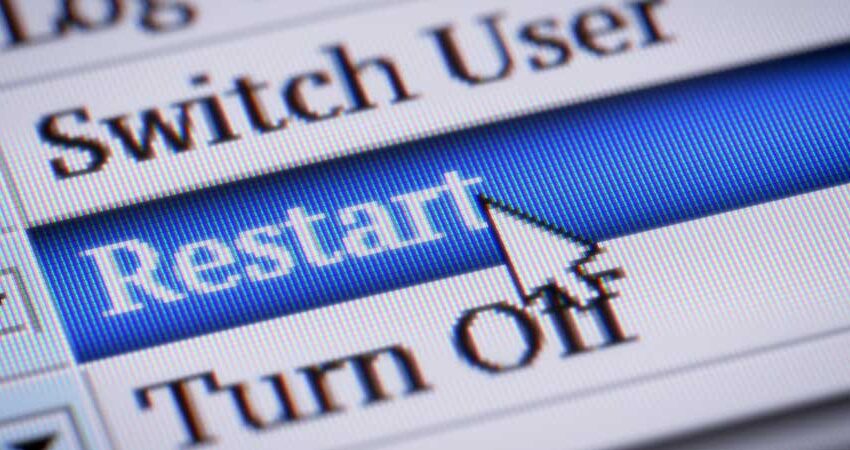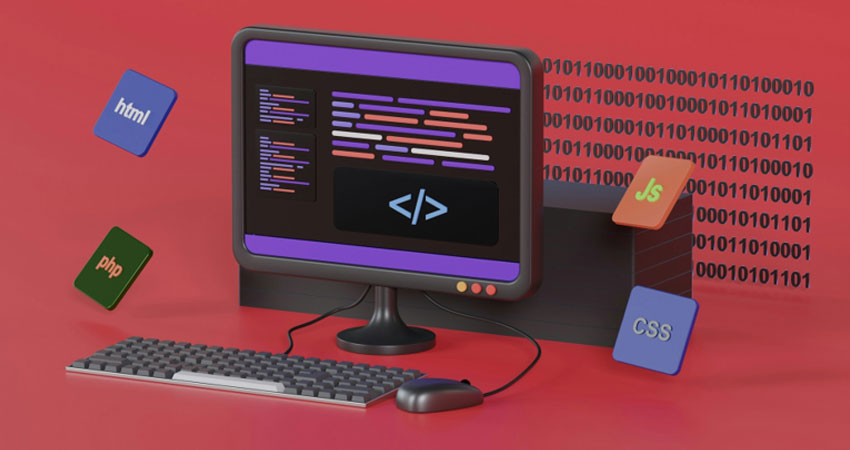Every single computer user ever has faced some issues while using their devices. It happens to every single user, no matter how big or small the issue is. Whether the PC is running too slow, the PC keeps disconnecting with Wi-Fi or apps keep closing up.
Most of the common issues are gone by restarting the PC. You can consider it as a magical solution to stay away from common problems. Of course, it is good to keep your computer healthy and get away with common PC problems.
If you want to know if restarting your PC bad, and if can it damage your hardware? Here’s all the information you need about restarting your PC.
Should I Restart My PC?
Simply put, restarting your PC is not bad. But sometimes, you do end up putting more strain on your device, and restarting your PC sometimes can hurt mechanical components such as hard drives. Restarting your computer puts on additional wear and tear on your device.
So it is fine to restart your PC two or three times a day as it does not cause any issues on your PC. But if you restart your PC multiple times a day, then chances are that you are shortening your device’s life.
Benefits of Restarting Your Computer
Rebooting your PC twice a day doesn’t damage your PC additionally. It is good to reboot or restart your PC before you see a damage notification on your system. In general, restarting your computer once a day or two days is recommended as it provides several benefits. Here they are:
1. Refreshes The Memory
Random Access Memory, or RAM is the physical hardware of a computer. The goal of the RAM is to provide space for a storage device. The computer uses RAM to load data because it’s much quicker to run than a hard drive. It helps to perform tasks quickly.
Every RAM has its capabilities, if you try to run several apps simultaneously, it can freeze your PC. Sometimes the RAM is already full with the programs and cache and it gets slower day by day.
To make sure your RAM performs optimally, you need to restart or reboot the PC.
2. Ends Memory Leak
Probably you think that running multiple programs uses up the RAM, and when you close the tasks, it frees up the RAM. But that’s now how it works, some programs keep on working in the background. Some parts of the program may still linger, building up over time and consuming resources.
That’s called a memory leak, which can slow down your entire device. It means a closed program can still make space in the memory. To resolve this issue you have to select the reboot option and reboot your device. It fixes your issue and makes your RAM free from the programs.
3. Great for Updates
When you restart your PC. It is not all about maintenance or getting rid of your issues. But it also completes the updates and installations of many programs in the systems.
Some programs also require you to restart your computer after an update. Without restarting, your device will keep on running the older version of the program. Thus, a reboot is necessary because the OS can’t update files that are in use.
4. Fixes Minor Glitches
Computers today are incredibly powerful and stable. Still, users run into a lot of errors and glitches which can make your device sluggish. Sometimes these glitches also cause your device to crash, or programs to shut down unexpectedly.
They may even affect your hardware, making them wear out quickly. As a result, you can experience unwanted overheating. All the computer experts recommend rebooting which can fix the glitches. Upon restarting your computer can perform a diagnosis and fix minor errors that come up.
5. Boosts Performance
Everyone wants their computer to perform well. But not restarting or rebooting your device can make your device full of app cache, and run slowly.
It makes your RAM work harder. So a computer with a full RAM cache would have slow performance and increase the programs and apps loading time. That’s why your PC should be restarted at ideal intervals.
When you reboot your computer, you clean all the residue app cache. This way, you help your apps run more smoothly and boost the performance of your PC.
Cold Vs. Warm Reboot
There are two ways to restart your PC: Cold and Warm reboot.
- Cold Reboot
This is also known as a hard reboot. It means when you unplug your device for restarting your system. For instance, when your device is frozen, a hard reboot or cold reboot is the best option to fix it.
- Warm Reboot
A warm reboot is also known as a soft reboot. It means when you can restart the system using the standard procedure.
| Cold Reboot | Warm Reboot |
|---|---|
| Cold booting is commonly known as hard booting in computer terminology. | Warm booting is also called soft booting. |
| The computer powers up from a completely powerless state. | The computer restarts without having to tinker with power. |
| A cold reboot helps you reset your hardware from scratch, and clean the RAM cache. | Does not reset the components, and does not clean memory. |
| A cold restart is done when the system doesn’t respond to a warm reboot. | A warm boot has been done when the program fails to run and the system is stuck between sessions. |
| It is carried out by way of shutting it off from the power source. | You need to ctrl, alt, and delete keys at the same time and then click on the restart button. |
| It runs self-diagnosis assessments thereby resetting the hardware and memory. | No full system diagnosis so it reduces reboot time. |
Is a Hard Reboot Bad for Your PC?
As above we have discussed soft and hard reboots for the PC. Of course, it involves different processes in both of them and their effects on the system can also differ from each other.
In a soft reboot, the OS has enough time to complete the process and shut down the PC peacefully whereas, in a hard reboot, it suddenly cuts off power and does not allow the hard disk to park its platters and the OS to end processes safely.
Some users believe that a hard reboot can lead to disk corruption, but modern PCs don’t have this issue. You could however get a corrupted file system, which you can easily fix with a CHKDSK scan. Most of the time you won’t even have to use the CHKDSK scan as your Windows or MacOS repairs the corrupt file issue itself.
If you’re confused about whether to go with a soft or a hard reboot, a soft reboot is the better option.
How Often Should I Restart My PC?
Today’s computers are far superior at memory allocation compared to old PCs. They require less frequent shutdowns and restarts. But that doesn’t mean you don’t have to restart/shut off your device at all. You can help the computer run more smoothly by performing the restart or reboot task.
The short answer to this question is it depends on your system’s performance. Whenever you feel that your PC is acting sluggish and slowing down, you should restart your PC. Sometimes rebooting the PC is the only way to fix small bugs and glitches.
For example, you are working with a program and suddenly it freezes. So restarting your system is the only way to get rid of the common issues. If you want to reboot your computer as a maintenance measure, it’s recommended to do it at least once a week.
Some users restart/shut down their PC once every day. Some users restart once a week. It all depends on the way you run your PC and the kind of apps you use.
If your OS is running smoothly, you may not need to reboot the PC every week. On the other hand, if you run resource-inducing apps that produce lots of caches, you will need to reboot your computer more often.
What If The Computer Restarts By Itself?
Sometimes you encounter a situation where your computer restarts by itself. Well if you notice this issue with your PC, it could be caused due to a number of reasons:
- A problem with the power supply.
- Overheating hardware.
- Defective hardware.
- A software or operating system bug.
- Malware and ransomware.



